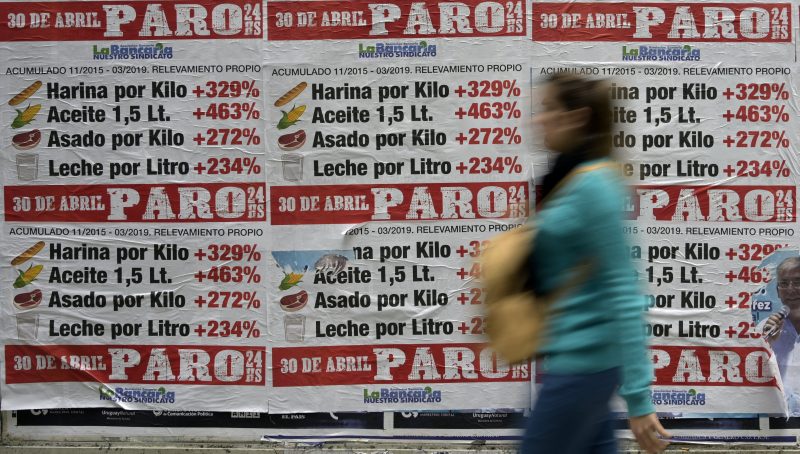Argentina to intervene in exchange rate to curb peso volatility
President Mauricio Macri’s austerity measures have IMF support but are highly unpopular amongst ordinary Argentines (JUAN MABROMATA)
Buenos Aires (AFP) – Argentina adopted a new measure Monday aimed at stabilizing its exchange rate, six months out from presidential elections in which economic worries are having an impact on opinion polls.
The central bank now has the power to sell up to $250 million a day to satisfy market demands.
The move comes on the back of a freeze in the prices of basic goods and public services announced by President Mauricio Macri two weeks ago.
However, Macri’s popularity has been falling in opinion polls as his austerity measures — backed by the International monetary Fund (IMF) — have proved highly unpopular.
Previously, Argentina had set maximum and minimum exchange rate levels for the peso against the US dollar in which the currency could fluctuate freely.
The central bank would only intervene — by buying or selling dollars — if the peso dropped below 51.54 or rose above 39.75 to the dollar.
Coming at the end of a week in which the peso lost 8.16 percent against the dollar, the markets reacted well to the news, with the peso opening at 46.50 — compared to its closing price on Friday of 46.80 — and had reached 45.81 by lunchtime.
“We support these measures, which are sufficiently calibrated to the challenges facing Argentina,” said the IMF, which last year agreed to lend Argentina $56 billion to help the South American country battle its currency crisis and inflation issues.
To combat last week’s currency volatility, the central bank rose its reference interest rate to 72 percent.
Macri’s government says currency instability is the main factor in the country’s spiraling inflation, which reached 11.8 percent for the first quarter of 2019, with the figure for the last 12 month just under 55 percent.
Economist Matias Carugati told AFP that the new measure “could work” but that “there are no guarantees.”
The central bank will “allow the exchange rate to move as freely as possible, but while trying to reduce volatility,” he added.
Argentina’s economic crisis and rising prices are two of the major concerns for citizens ahead of October’s elections.
Macri has slipped behind former president Cristina Kirchner in opinion polls.
Disclaimer: Validity of the above story is for 7 Days from original date of publishing. Source: AFP.


